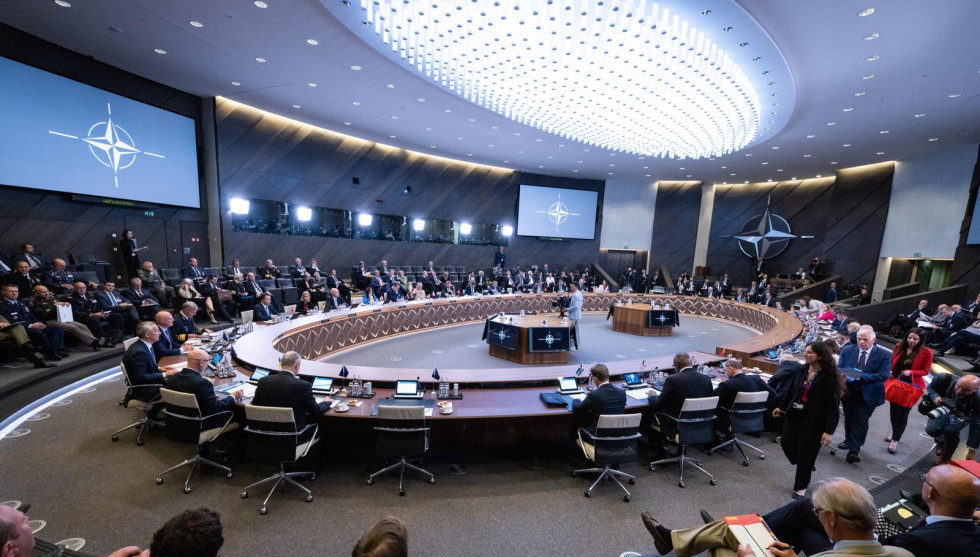Minister Šarec attends NATO Defence Ministerial in Brussels
On the first day of the meeting, the defence ministers held a meeting of the NATO-Ukraine Commission (NUC), which was also attended by Oleksiy Reznikov, Minister of Defence of Ukraine, Pal Jonson, Minister of Defence of Sweden, and Josep Borrell, High Representative of the European Union for Foreign Affairs.
The Ministers took stock of developments on the ground, unanimously reaffirmed their continued support for Ukraine, and discussed long-term support for Ukraine through the extension and upgrading of the Comprehensive Assistance Package (CAP) into a long-term mechanism. Under the CAP, Slovenia will contribute €1 million to a demining equipment supply project.
In response to Ukraine's Euro-Atlantic aspirations, the Allies underline a significant strengthening of political and practical support to Ukraine, including through the CAP Trust Fund and the establishment of a NATO-Ukraine Council to replace the NUC format.
This followed a meeting of the Ukraine Defence Support Contact Group, where Ministers discussed further military and other support. Minister Šarec reiterated unity as the key to further assistance.
Slovenia has provided Ukraine with generous humanitarian, material and military assistance since the beginning of the Russian aggression. Ukraine can count on our support in the future, including in post-war reconstruction. We have extensive experience in demining and medical rehabilitation, and we are focusing our efforts in these areas," stressed Minister Šarec, recalling that Slovenia is also participating in the European Union Mission in Germany (EUMAM Ukraine) by providing several modules of specialised training for the Ukrainian Armed Forces.
On the second day, the ministers continued their meeting with a working session on deterrence and defence, which was dedicated to reviewing the implementation of the decisions taken at the Madrid Summit and measures to further strengthen the Allied deterrence and defence posture.
Discussions also focused on the new Defence Expenditure Commitment (DIP 2.0) with targets beyond 2024. Discussions at the level of Defence and Foreign Ministers suggest that the current target (2% of GDP for defence expenditure, 20% for investment in major equipment) will represent a minimum starting point and no longer a ceiling. Key steps in this direction are expected to be confirmed at the NATO summit in Vilnius next month.
As Minister Šarec underlined, we recognise that investment is the key to closing the gap and reaching a new level of ambition, which is why we have stepped up national efforts to reach two per cent of GDP and prioritised investment in key capabilities.

Defence Ministers Meeting at the NATO Headquarters in Brussels | Author Nika Vrhovnik

